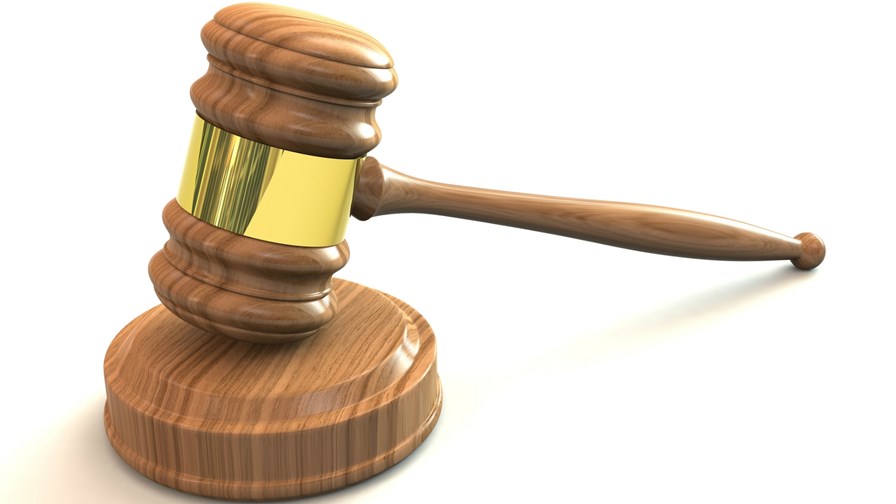You can’t take down trillion-dollar companies with duct tape and Band-Aids

via flickr © ccPixs.com (CC BY 2.0)
- New chair of US Senate Judiciary antitrust subcommittee takes aim at Big Tech
- Amy Klobuchar introduces legislation to prevent monopoly market domination
- Will prevent buy-out of rivals just to close them down and stymie competition
- Doubles the budgets of two regulatory bodies
If the Big Tech companies thought they might avoid the levels of scrutiny and regulation that were looming over them when Donald Trump left office, they were foolishly mistaken. It is already evident that the Biden administration will take an equally tough, or even tougher, stance against them. President Joe Biden himself is known to be suspicious of the size, power and market domination of the likes of Amazon, Apple, Facebook and Google and his choice as the chairperson of the powerful Senate Judiciary antitrust subcommittee, Senator Amy Klobuchar of Minnesota, reflects that unease.
With the new anti-trust legislation, the "Competition and Antitrust Law Enforcement Reform Act", currently being framed in a bill to be brought forward for debate and passing into law the effects on the hitherto untouchable Big Tech mastodons could be profound. The principal aim of the bill is to hit Facebook at al where it hurts by ensuring they can no longer maintain market domination by the oft-applied expedient of using their immense wealth simply to buy, consolidate and strangle in their corporate coils and thus neutralise any other company that is in any way perceived to be a potential threat to their hegemony. Ensuring that competition is allowed to proceed without being stifled and emasculated by quasi-monopolies will be a start and meaningful regulation really will clip their wings.
Of course, the new law will not only affect technology companies and social media platforms. As Senator Klobuchar says, "We have an increasing monopoly problem, really headlined by what is happening with tech but also extending across the economy. Our laws have to be as sophisticated as those companies that are messing around with competition."
The Act will confer new powers on two regulatory authorities that already have a remit to police Big Tech but find themselves hidebound by a lack of out of date and meaningful regulation pertinent to a changed world utterly dominated by social media platforms and other technology companies. Thus both the antitrust division of the US Justice Department and the Federal Trade Commission will both get their budgets increased by US$300 million, additional staff and an extended and strengthened remit.
The reality is that the increase more than doubles the budgets of both bodies and that alone is indicative of the new administration's intent. Furthermore, the FTC will get a new division, the Office of the Competition Advocate, which will have responsibility to undertake market investigations to pinpoint where competition is, or could be, stifled.
The new law will also and at last put the onus on Big Tech companies to demonstrate that acquisitions are not being made simply to take a potentially competitive player off the board. That requirement will make for some bone-creaking contortions on the part of Google etc and the world waits with bated breath to see the first example of a corporate lawyer actually pushing his head up his fundament in an effort to prove the unprovable.
Fines of 15 per cent of annual turnover will really hurt
The Senator says 2021 will go down in history as the year in which a sustained and genuine legislative effort will be made to bring Big Tech to heel. She added that it won't be a matter of "pulling constant hearings where we’re yelling at executives and throwing popcorn at them, though I’m sure some of that will go on. We have to pass something and I really want to see something get done. If we don't do anything, shame on us."
The new Act will also provide for the imposition of truly massive fines (15 per cent of annual turnover) for companies found to be in breach of it. In the past penalties of millions of dollars have been imposed that, in reality, were no more than chump change to corporations richer than Croesus and his old mucker Midas combined.
What's more, in future Senate hearings small companies will be encouraged to give evidence against Big Tech and to present their own defence against aggressive take-overs designed to kill the thing that is being bought. In the past small companies have been unwilling to appear having either been leaned on by a Big Tech bully or otherwise persuaded to keep quiet.
These changes may well have the effect of causing Big Tech actually to work with legislators and regulators in efforts to minimise the the scope of new strictures and restrictions they might face (and you can bet your sweet bippy that, simultaneously, Big Tech lobbying on Capitol Hill will quickly reach stratospheric levels) especially as individual states will continue their many and varied efforts to curb the excesses of Google and Facebook, many of which could become law this year.
As Amy Klobuchar says, "You can’t take down trillion-dollar companies with duct tape and Band-Aids." No you can't. It is going to take a determined and concerted long-term effort to bring things back into balance and while the new legislation is very welcome, as is the increased funding going to regulators, vigilance and back-up powers will be needed to ensure that change isn't stymied by endless litigation and court cases brought by corporations willing to spend huge sums defending the status quo and protecting their lovingly-tended money trees.
Email Newsletters
Sign up to receive TelecomTV's top news and videos, plus exclusive subscriber-only content direct to your inbox.




